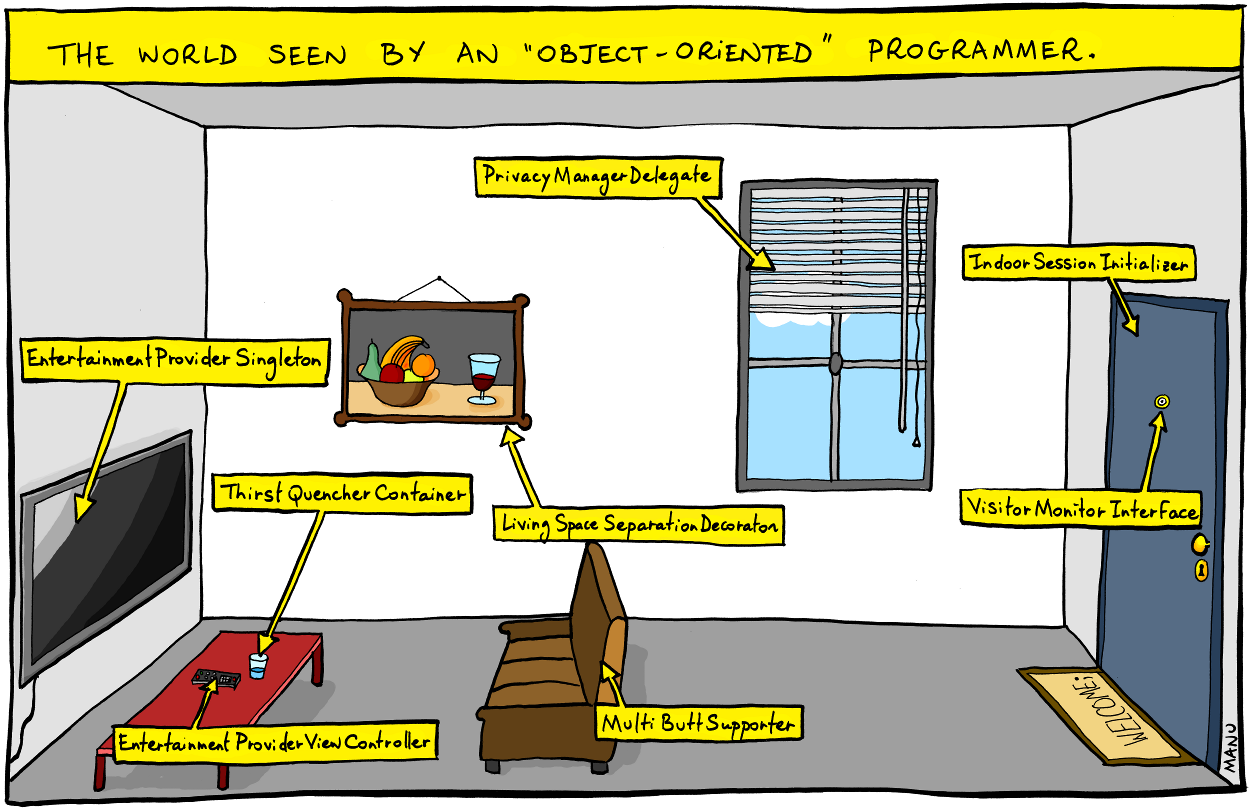Naming Conventions
Names should be descriptive; avoid abbreviations. Give a descriptive name, but be specific. Do not worry about saving horizontal space, as it is far more important to make your code immediately understandable by a new reader. We do not contract words or make up words.
We use English words for abstractions
- The programming language is in English, most concepts are in English, therefore English is a lot easier to make consistent. (WriteExportAbacusEinFile, etc.)
- Most of the concepts except a few in the building industry are already in English.
- We want to avoid being confused about GetProject vs GetProjekt. For a single concept, only one word in one language should be chosen.
- Avoid variables like workWork (sic)
- It is a lot easier to create plurals in English (-s, -ies) where in German it might be difficult: Kapitel, Mitarbeiter, Unternehmer, Fenster, Artikel (see also next point)
- Proper Nouns should not be translated even if possible.
- We try to use the same word for the same abstraction. It is either a project or a tenant. (DDD)
Be specific

Only use generic words like, data, list, string, number, manager, gateway and handler if necessary in a generic context. Otherwise, try to find specific domain words. Build a domain specific ubiquitous language. In domain context, always use the domain vocabulary and try keeping the overhead to a minimum, be precise.
Abbrevations
We do not use abbreviations that are ambiguous or unfamiliar to readers outside our project, and we do not abbreviate by skipping letters within a word. Abbreviations that would be familiar to someone outside your project with relevant domain knowledge are OK. As a rule of thumb, an abbreviation is probably OK if it is listed in Wikipedia like IP or HTML. All abbreviations are written in PascalCase.
class JsonToHtmlConverter
{
}
class IpAddress
{
}
class UserId
{
}
class TfsConnector
{
}
Abbrevation Examples
Use plural and singular to your advantage
If you have a collection of things, use the plural form of the variable you would use for a single element. Prefer being specific, as the name of the collection should reflect the meaning behind its elements. This gives you a natural understanding on what object you are dealing with.
var onlineUsers = GetOnlineUsers();
for (var user in onlineUsers) {
user.GoOffline();
}
Correct usage of plural
Try to use the same word for the same concept
Do not switch between different name for a concept, make a choice and stick to it.
Naming the different C# identifiers
Table following table gives you the rules for each identifier.
| Identifier | Casing | Prefix / Suffix | Example |
|---|---|---|---|
| Namespace | PascalCase | Messerli.Core | |
| Class | PascalCase | WarpEngine | |
| Exception class | PascalCase | <Name>Exception | InvalidArgumentException |
| Interface | PascalCase | I<Name> | ISyntaxTree |
| Abstract class | PascalCase | Application | |
| Method | PascalCase | DrawSquare | |
| Properties | PascalCase | FirstName | |
| Predicate method | PascalCase | Is<Name>, Has<Name>, Are<Name>, Have<Name> | IsGreat, HasField |
| Public Member Variable | PascalCase | Diameter | |
| Protected member variable | camelCase | _<name> | _tableIndex |
| Private member variable | camelCase | _<name> | _adjacencyMatrix |
| Local variable | camelCase | index, name, helpLabel | |
| Global constant | PascalCase | Pi, PrimeNumbers | |
| Class constant | PascalCase | FilePath | |
| Enum type | PascalCase | StatusType | |
| Enum value | PascalCase | RequiredValue | |
| Lambda Parametrs | camelCase or lower-case letter | cornerPoint, c, name, n |
UI Elements
When dealing with UI Elements like buttons, combo boxes, grids, text boxes, etc. we append the full name of the type without any prefix to the variable name.
class UserRightDialog
{
Grid _userGrid;
Edit _userNameEdit;
Button _okButton;
};
Naming of UI Elements
Naming of delegate variables
All delegate variables should be in camelCase without a prefix or postfix. All other Methods are PascalCase which means if you see a createThing(), you will know that it is indeed a delegate call.
Naming of Tests
The naming of tests must describe what the intended effect of the methods that are being tested, e.g. ReturnsNullOnEmptySettings or ThrowsOnInvalidResponse.